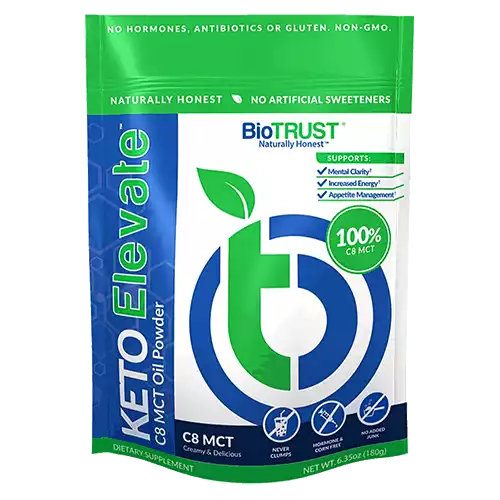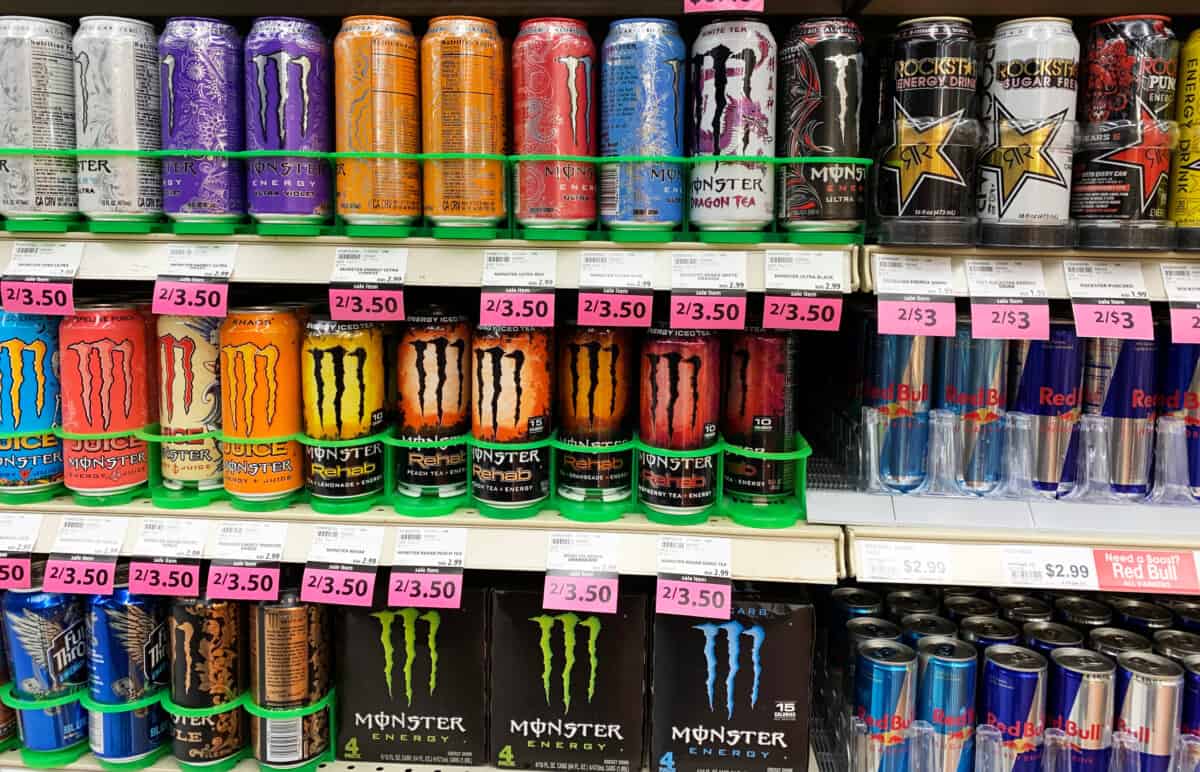So, can you chew gum while fasting, or will it break your fast and ruin your results?
While chewing gum while fasting might not seem like a big deal, it could still break your fast. Wouldn’t it be nice to chew gum guilt-free during your fasting period without fear of it breaking your fast?
There’s a lot of confusing and conflicting information out there on whether or not chewing gum can spike blood sugar and insulin levels. The last thing you want to do is cancel intermittent fasting by unknowingly chewing the wrong gum.
Here, you’ll find the definitive answer to whether you can chew gum while fasting or if it’ll ruin or lower your results.
Does Chewing Gum Break a Fast?
Quick Answer: No, chewing sugar-free gum doesn’t break your fast since it won’t spike your blood sugar or insulin levels. It may contain a tiny amount of calories, but it won’t ruin your results if you’re mainly fasting to lose weight. But gum with sugar will and can break your fast.
If you’re mainly fasting for weight loss, then you really don’t have to worry about chewing gum during your fast as long as it doesn’t contain sugar.
Sugar should be avoided during your fasting window since it spikes blood sugar and insulin. The key to fasting is to keep your insulin as low as possible and in a ketogenic state. So, if the gum you’re chewing has sugar, you can kick yourself out of this fasted state.
The sugar in gum can be absorbed by your body from chewing even without swallowing it.
If you’ve ever chewed gum for a long time, then you’ll know how it becomes unflavored. That’s because the sugar and all other flavoring have been lost and absorbed into your bloodstream through your mouth.
The sugar then makes its way into your bloodstream, where it can cause an insulin spike. Since gum only contains a few grams of sugar, the response will likely be small but a spike nonetheless.
If you’re doing a pure clean water fast, then anything other than water will break your fast. If you want to maximize every result from fasting, including autophagy, you’ll only want to drink water.
According to fasting purists who follow clean fasting, they believe that consuming anything other than water can cause a metabolic disturbance and reaction in the body that could negate or dampen results.
So, if you want to maximize every benefit and aspect of fasting, then it’s best to stick with pure water fast. But if your main goals are weight loss, fat loss, mental clarity, energy, and improved gut health, then you don’t have to be so strict and can chew gum while still getting results.
Chewing Gum Curbs Hunger
Chewing gum helps suppress appetite during fasting, making it much easier for many to keep fasting longer. So, if chewing gum keeps you fasting, you’ll have better results in the long run.
One of the hardest parts of fasting is fighting the ‘hunger pangs.’ For some, the hunger can become so unbearable that they give up the fast and end up eating, which, of course, will totally break your fast.
But if chewing gum squashes your hunger and makes it easier to keep fasting, then go for it. Gum that only has 5 to 10 calories isn’t going to ruin your weight loss results.
Chewing sugar-free gum doesn’t spike insulin or break ketosis. One study found it had no significant effect on insulin. The researchers even suggest chewing gum is a cheap and effective way to reduce calories for weight loss.1
Chewing gum for 45 minutes has been found to significantly lower hunger, appetite, and cravings.2 Chewing gum can help to prevent impulsive eating by affecting reward circuits.3 Researchers have found that the longer you chew gum, the less hunger you’ll have.4
A study found chewing gum in the morning led to a decrease in the amount of food eaten for lunch.5 And chewing gum led to a reduction in eating afternoon high-carbohydrate snacks.6
Yet, chewing even sugarless gum can result in higher gastric fluid volume and increased saliva.7 The chewing can signal pathways for your body to prepare for incoming food, resulting in more gastric juice in your stomach.
For some, chewing gum can make you swallow a lot of air. And if the gum you’re chewing contains sugar alcohols, you could burp more since they’re not processed until later in your digestive tract.
It’s a good idea to test whether chewing gum helps lower hunger when fasting. For many, it’s a “hunger killer,” but some may have side effects that make it not worth it. Everyone is different.
Sugar-Free Gum and Fasting
Sugar-free gum replaces sugar with zero-calorie artificial sweeteners like sucralose, aspartame, and sugar alcohols.
Zero-calorie artificial sweeteners shouldn’t cause an insulin spike, so they shouldn’t technically break your fast unless you’re a water-fasting purist. But there is a belief that anything so sweet, such as sucralose (600x sweeter than sugar), could cause cephalic insulin response in your body.8
This happens because consuming something so sweet causes an insulin response in anticipation of incoming calories. It’s kind of like when you see and smell something delicious, and then your mouth starts watering.
Sugar alcohols also have little to no impact on blood sugar or insulin levels, making them acceptable when fasting.
Gum containing the sugar alcohol sorbitol shouldn’t be consumed in large amounts. Sorbitol is poorly absorbed by the small intestine and can cause a laxative effect.9 So, I wouldn’t chew 10-20 pieces of sugar-free sorbitol-containing gum at a time.
Some chewing gums can lose their flavor quickly. The next thing you know, you’ve already had five pieces of gum in an hour. So be aware of how much gum you consume and try not to go overboard.
If you’re fasting for weight loss, don’t worry about toothpaste or mouthwash like Listerine breaking your fast. The most common sweetener in toothpaste is sodium saccharide, which is 300 times sweeter than sugar.
But the artificial sweeteners in toothpaste and mouthwash shouldn’t break your fast. Of course, some of the sweetener could be absorbed sublingually in your mouth, but it would only be a very tiny amount that’s so insignificant that it won’t spike insulin. Just don’t eat your toothpaste or drink mouthwash, and you’ll be fine.
Best Chewing Gum for Intermittent Fasting

Ideally, the best gum for intermittent fasting will not contain sugar, artificial sweeteners, or sorbitol.
This kind of gum can be tough to find, and you won’t be able to pick it up at your nearest convenience store. Popular sugar-free gum choices (like Eclipse and Orbit gum) usually contain a lot of sugar alcohols, like sorbitol. They also use aspartame, a more controversial artificial sweetener.
I usually recommend chewing xylitol gum. Xylitol is a sugar alcohol that is beneficial to oral health. A landmark study found those consuming xylitol had up to an 85% reduction in cavities compared to those consuming sugar.10 But xylitol is toxic to dogs, so be sure to keep it out of their reach.
Pur chewing gum is a good and easily accessible xylitol-based chewing gum brand. I also recommend using xylitol-based mints like Zellie’s in between chewing gum to prevent bloating and gas.
Tip: Use peppermint-flavored chewing gum, as studies have found peppermint is effective as an appetite suppressant.11
Mastic gum is another excellent gum choice that doesn’t break a fast and has additional health benefits. It can help with digestive health and has antimicrobial and anti-inflammatory properties.12
Mastic gum can also be beneficial for strengthening your teeth and jawline.13 Unfortunately, the modern Western diet has many soft, processed foods. The theory is that this has reduced jawlines, weaker teeth, and tooth overcrowding.
If you’re used to chewing popular gums like Orbit, then it’ll take a little time to get used to the taste of mastic gum. It has a dense, rubbery texture and a very faint flavor. But if you’re looking for the best gum for fasting and improving your teeth and jawline, this is probably it.
What Other Foods Won’t Break a Fast
If you’re not following a pure and clean water fast, you can also eat other foods that help boost your metabolism, increase energy levels, and suppress appetite.
Dirty fasting also allows a “50-calorie rule” that gives some leeway when fasting. You can have a small amount of calories during your fasting window without fearing it’ll break your fast.
Water is the number one drink choice that won’t break your fast. Being well-hydrated makes it easier to get through your fast by reducing hunger. It’s easy to mistake hunger for thirst from dehydration.14
If your body agrees with caffeine, you can add coffee and green tea too.15,16 Caffeine will give you energy, curb hunger, and boost your fasting metabolism.
You can also drink lemon water when fasting, especially if it encourages you to drink more water. Lemon juice can naturally reduce hunger and lower the blood sugar spike from food.17
Zero-calorie sparkling waters like La Croix can make it easier to get through your fast. But keep in mind that one study found sparkling waters can possibly increase the hunger hormone ghrelin, making you feel more hungry.18
Try adding C8-MCTs to your morning coffee while fasting with this keto coffee creamer. C8-MCTs (caprylic acid) are quickly and efficiently converted by your liver into ketones.19 These ketones are what your body makes from your fat stores for fuel when it runs out of food to burn.
With fasting it can take many hours before your body really starts burning fat stores for fuel. So taking C8-MCTs can help kickstart the “metabolic switch” so your body starts burning your body fat for fuel.
Support Many of the Keto Benefits Associated With Increased Ketones, & Support Them FAST, but Without the Difficulty of Doing Keto...
Increase Ketone Levels Inside Your Body to Boost Metabolism, Elevate Energy & Enhance Mental Focus
- 3X Better Than Coconut Oil, Butter or MCTs
- Heightened energy levels
- Reduced cravings & appetite
- Graceful aging
- Healthy metabolism
- Increased mental clarity & focus
- Heightened physical performance and recovery
Summary
Chewing gum is a great tool for fasting. It can lower hunger, making it easier to complete your fasting window.
Hunger is by far the most challenging part of fasting. If you’re too hungrier, it’ll make you miserable during your fast, and then it’s only a matter of time before you stop fasting altogether.20
So, if you can lower your hunger levels just by chewing gum, you’ll be much more likely to keep fasting longer. It’ll also be more likely to keep fasting daily, knowing the hunger won’t be unbearable.
Of course, you’ll maximize the benefits of fasting by having a strict water fast. However, if chewing gum keeps you fasting, you’ll win out, especially in the long run.
Yes, you can chew gum while fasting without it breaking your fast. Just make sure you chew sugar-free gum and keep on fasting until your scheduled fasting window is complete.
Josh holds a Bachelor’s degree in Exercise Physiology and Nutrition Science. He’s a Certified Strength and Conditioning Specialist (CSCS) by the National Strength and Conditioning Association and he’s a Certified Personal Trainer (CPT) by American Council on Exercise. He’s worked as a Strength and Conditioning Coach at the high school and college levels. He has over 15 years of experience as a personal trainer and nutrition coach. He strives to bring inspiration and results for people to live healthier lives through smart diet and exercise.





